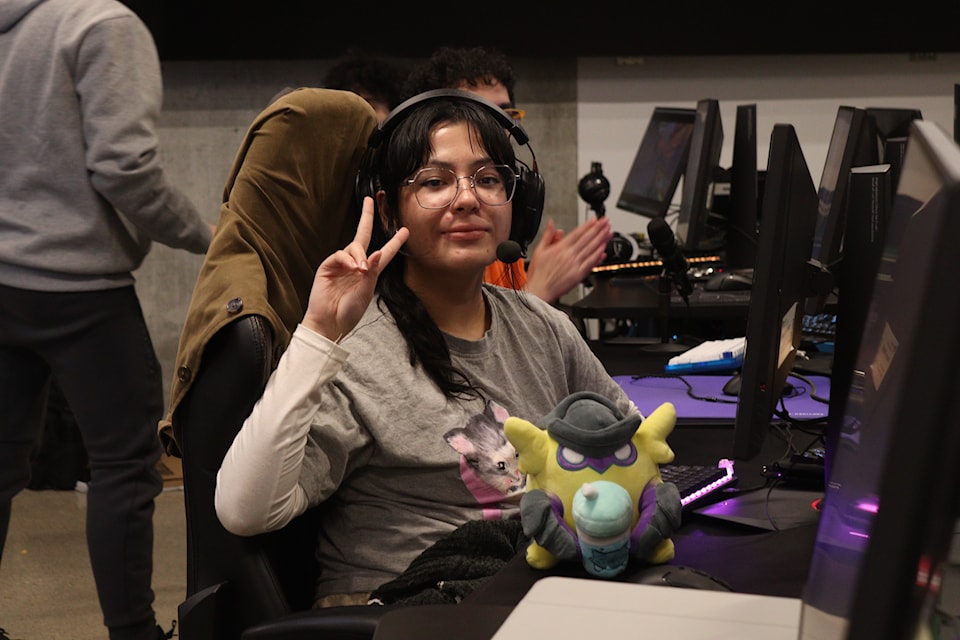Humber Esport’s varsity team Valorant recently recruited its first female player, Tia Kelsey.
Kelsey is the team’s Controller, a role that relies on taking advantage of map sites from the other team through character utilities.
With a background in low-tiered Game Changers teams, esports teams for marginalized genders, Humber Et Cetera sat down with the Esthetician student. She spoke about the challenges women and marginalized genders face from their male counterparts during pug matches and tournaments.
Humber ETC.: What was your experience like with GC teams before Humber?
Tia Kelsey: It was really hard to win. Honestly, it was really demotivating because I never had a finalized roster or anything. We had to constantly pug (pickup) members and teammates and have trials. My old teammate and I, Shinx, would try to build teammates and it would just never happen. It was really exhausting but I kept trying because I was like, oh, I must have potential. Now, I’m on collegiate, and I was like, I’m just going to take a break from GC because the team itself is very hard to develop in general. GC is kind of dying.
Humber ETC.: Why do you think it’s difficult for GC to thrive compared to the typical male-dominated rosters?
Kelsey: GC is not as popular as male-oriented teams. It’s very hard to compete in an area that’s not as known or preached like male teams. I also feel like I don’t see a lot of co-ed teams. It’s why I’m all collegiate now. It’s a really big deal to me because I feel like in collegiate, there’s not enough women on teams at all, or marginalized genders. I really want to make a difference, and I really want to make it far. I was originally a sub, actually, and then I argued that ‘Oh, I don’t deserve that,’ even though everyone’s really good, and I actually argued my way into the main roster. And the point I made was, I want to make a difference as a woman in a collegiate team.
Humber ETC.: How do you feel about marginalized genders not being taken seriously within the esports space?
Kelsey: I feel like I always have to prove something. Like, I always have to prove that I am good enough to be here and that I’m good enough to play. Even just playing games normally, I always feel like I have to do good, or else I’m going to face people calling me boosted or just sexist comments in general because I’m a girl playing the game, you know. So, I think girls and marginalized genders get overlooked a lot in competitive scenes because they’re just seen as not good enough. And that’s just not true. Even with "flor" being the main example of a trans woman who’s insane at the game, people still try to beat her down, and it always has to do because of her gender. And it just makes no sense to me because she’s like, the best player I know, better than a lot of males in that scene. Yet people still try to downgrade and be sexist towards her. So, I just feel like, in my perspective, I’m hard on myself because I know everyone will naturally be hard on me anyway because I’m a girl.
Humber ETC.: What attitudes or like, mentalities, would you want to see from other players?
Kelsey: I’d like to see it be more normalized for people to hype up women more. I kind of feel like this way maybe, maybe not, with my collegiate team. I find my teammates are not used to being on a team with a girl. I understand that, but I always told them you can treat me like you treat your guy friends. I don’t care if you dab me up, I want to be hyped up just as you would hype up your friends. I need confidence too. I’m trying to find ways to make it more normal for them, too. I’m sure they’ll get more used to it over time because I’m already really good friends with most of them anyway.
Humber ETC.: What are your closing thoughts about GC or collegiate teams?
Kelsey: I hope in the future there’s more women in marginalized genders and collegiate, that it’s more normalized. I also hope that [co-ed teams] with girl teammates or marginalized teammates, just treat them the same way. Dab them up, give them a hug, whatever. It’s overbearing to be the only girl. It really is. So, try to make them feel comfortable for you, and I think my team has been doing a good job of that.



